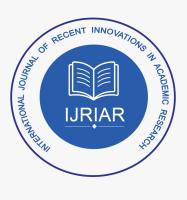,
Just Try Harder?: Examining the Relationship Between Attribution Habit, Self-Esteem, Self-Efficacy, and Academic Performance of Asian American Female College Students by Using Semi-Structured Interview and Vignette Experiment
International Journal of Recent Innovations in Academic Research, 8 (2): 29-38 (февраля 2024)
DOI: https://doi.org/10.5281/zenodo.10701620
Аннотация
Existing studies have begun to explore Asian-American students' paradoxes of high-achievement and low self-esteem using the framework of attribution theory. Interested in the gap in research pertaining to the intersection between gender, race, and self-esteem, the current study attempted to explore the relationship between self-esteem, self-efficacy, academic performance, and attributional habits within Asian-American female college students. For this, academic achievement, self-esteem, self-efficacy, and attributions for both academic successes and failures were examined through an online survey sampling a population of Asian-American female college students, as well as a focus group interview focused on a homogenous sample of Asian-American second-generation college students. Survey results showed a significant negative correlation between GPA and participants’ attribution biases towards effort, as opposed to ability, for positive academic outcomes. On the other hand, students who reported higher self-efficacy tended to attribute effort more than external attribution factors for positive academic outcomes. Semi-structured focus group interviews highlighted not only underlying inferences the attribution and academic performance relationships found in the survey but also suggested possible explanations for the causal attribution in negative outcome situations. This study shed light on multifaceted psychological bias in attribution of Asian-American female students to complex educational contexts.
